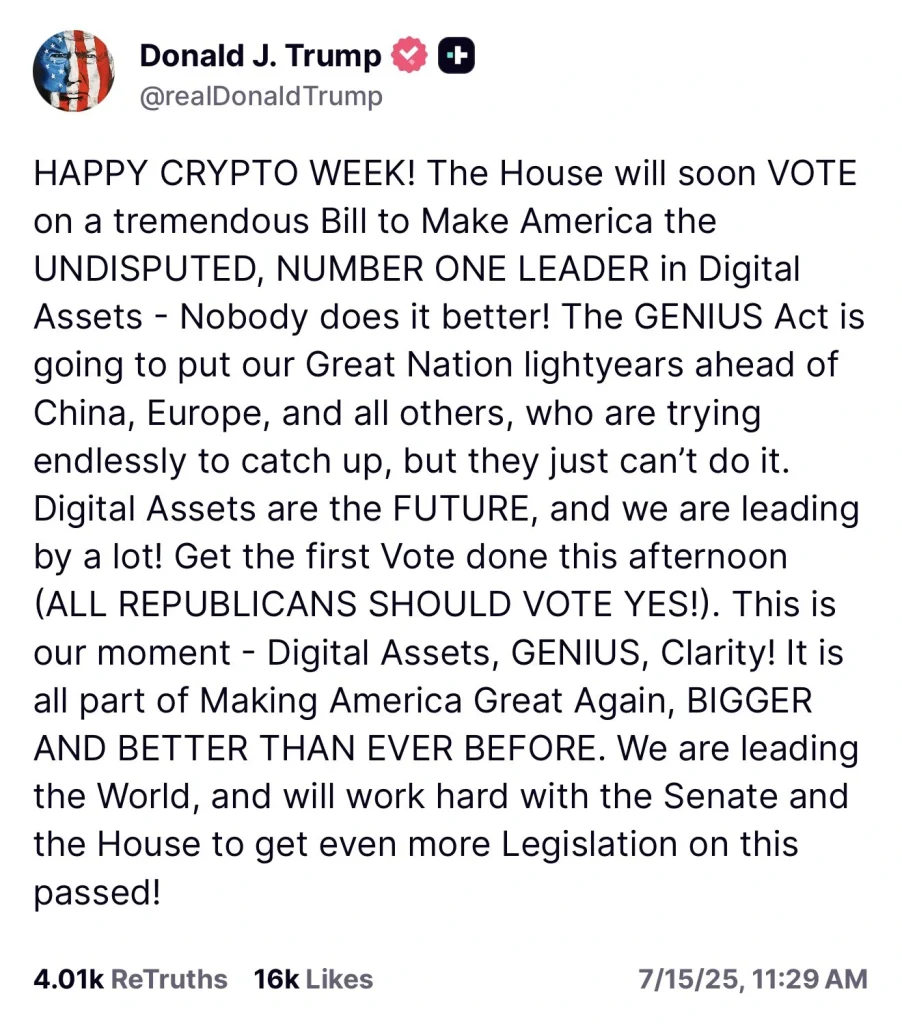Congress Botches the GENIUS Act & CBDC Rollout: A Masterclass in Legislative Dysfunction
Lawmakers fumble the future of finance—again. Two critical digital asset bills crash and burn while Wall Street shrugs. Here's why Washington can't get out of its own way.
The GENIUS Act: Dead on Arrival
What was supposed to be a framework for crypto innovation became a lobbying free-for-all. Senators added last-minute pork, agencies turf-warred over jurisdiction, and the final draft looked like a blockchain—overcomplicated and impossible to follow.
CBDC Debacle: Fear Trumps Progress
The central bank digital currency proposal got kneecapped by privacy hawks and banking lobbyists. Never mind that 114 countries are exploring CBDCs—America's version got stuck debating whether the Fed would 'cancel' dollars like Twitter trolls.
Meanwhile in Reality...
Bitcoin ticks up 3% as institutional money laughs at DC's circus. Because when has Congress ever stopped a financial revolution? The market's already voting with its wallet—while politicians still can't figure out theirs.

The Congress has turned into a political showpiece on Tuesday, July 15, after 12 Republicans failed a procedural vote on several crypto-related legislation. What had begun as a positive crypto week for President Donald Trump has turned sour after the Congress signaled different interpretations of certain clauses, especially in the Genius Act, which have been meant to provide clear rules for stablecoins.
Out of the total votes, 196 House members voted for the bill to continue while 223 members, the majority including the Democrats, voted against the debate of the legislation. As a result, the House has been on standstill and a huge blow to President TRUMP and the wider Republicans.
Furthermore, the just-concluded vote has prevented the Congress from debating and eventually voting on the bill later this week.
What Went Wrong in Congress With the Genius Act Bill?
According to Eleanor Terrett, the Republicans who voted against the Genius Act argued that the bill could have been constructed to secretly allow the Federal Reserve to introduce a CBDC.
![]() NEW: Many of the House members who voted no today had concerns with the GENIUS Act possibly enabling a CBDC. However, there is language in GENIUS that WOULD explicitly prohibit the Fed from creating a retail CBDC.
NEW: Many of the House members who voted no today had concerns with the GENIUS Act possibly enabling a CBDC. However, there is language in GENIUS that WOULD explicitly prohibit the Fed from creating a retail CBDC.
The section below says the bill shall not be construed as… pic.twitter.com/sZVids8KHk
The political divide, especially within the Republican Party led by President Trump, is a huge blow at a time when the margins with the Democratic Party are thin. Furthermore, President Trump has been at loggerheads with Elon Musk, who recently created the America Party, after ideological contrast.
The Trump administration has pushed the House to pass the GENIUS Act to help rival China and other global markets. Furthermore, the crypto market has a growing influence among young voters, who made a huge impact in the previous Presidential election.

Since it is a developing story, keep a close eye on tomorrow’s update from the House and President Trump. Moreover, the outcome will likely impact the crypto volatility in the coming days.

